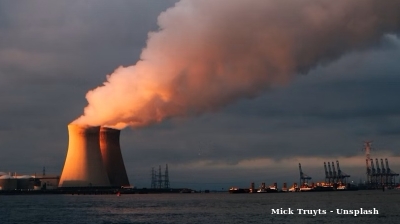Russia's machine tool industry has exhibited substantial growth despite US sanctions targeting importers of foreign advanced machine tools and the banks that finance these imports, Russia’s Higher School of Economics (HSE) said in a recent report.
“The mechanical engineering industry has received a powerful impetus for development in recent years. More than 40% of enterprises producing machinery and equipment entered 2024 with updated development strategies in terms of production and investment policy, import substitution, digital and technological activity. Enterprise managers assessed the level of technological sovereignty that had developed at the end of 2023-beginning of 2024 quite positively: 18% of respondents considered it "high", 61% "average" [and] only 13% "low", 8% stated its absence,” HSE reports.
“An accentuated growth in demand for import substitution was noted by about a quarter (26%) of production facilities. More than 40% of enterprises have a "very high" and "high" potential for implementing the process of producing import-substituting products. Almost 60% of enterprises have a "high" and "medium" level of readiness to implement new technologies. More than 40% of production facilities financed projects for their implementation. About a third (31%) faced the need to invest in technological development, while almost half of respondents (47%) noted a high level of need to attract investment in R&D in 2024 to create high-tech products,” HSE added.
The number of Russian firms specialising in machine building is increasing. In the first quarter of this year, the number of organisations specialising in the production of machinery and equipment not included in other groups grew to 14,800, up 2.5% year on year, and the number of medium and large organisations was up 11.5% in January y/y to 882 with a total of some 417,000 skilled workers employed in the sector.
As bne IntelliNews reported, Russia has missed out on two machine precision tools revolution that has left it entirely dependent on imports of Western electronics and machines. The West has sought to exploit this weakness by slapping extreme technology sanctions on Russia, but those have largely failed; last year Russian imports of technology were only 2% lower than the pre-war levels in monetary terms.
Long term, Russia’s lack of machine building skills will impede the country’s development and the Kremlin has launched yet another attempt to catch up, and is throwing money into the sector. As bne IntelliNews reported, the Kremlin has been pushing import substitution but progress has been moderate, according to a separate recent study by the Bank of Finland institute for Emerging Economies (BOFIT).
And the new drive to boost R&D into the business is bearing some fruit, HSE found. The productive growth of the machine tool industry has been a result of government measures aimed at easing financial burdens, rather than the sanctions themselves, according to industry analyst Allen Maggard.
"Metalworking machine tool production grew by 21.5% between January-April 2023 and January-April 2024, further pointing to expanding growth in the sector's productivity," Maggard tweeted. "Much of this growth was driven by turning, boring and milling machines, consistent with plant PR over the past year."
HSE does not disaggregate Computerised Numerical Control (CNC) machines – the focus of the study and an advanced computer-based machine control system tools where Russia is trying to catch up – from other simpler machine tools in its data. However, for CNC turning centres specifically, production increased by 50%, from 205 units in January-April 2023 to 309 units in the same period of 2024. Additionally, the production of "machining centres, aggregate machine tools and multi-positional machine tools" grew, making up 33.3% of all machine tools produced in April 2024, up from 21.8% in January 2024.
"Even if HSE did provide more precise information regarding the number of CNC machine tools being produced, there's still the question of what constitutes 'production' as such. Would it include totally new machine tools, or would it also include older machine tools retrofitted with Russian-made CNC control systems?" Maggard pointed out.
Despite this growth, Russian companies continue to import foreign CNC machine tools. "How long it will take for domestic machine tool production to generate a volume of supply capable of satisfying Russian defence industry demand is anyone's guess," Maggard added. "But if HSE’s findings are to be believed, considerable progress is underway."
Pre-war the Kremlin had made several attempts to create a domestic precision tool industry and boost R&D into the sector with little success. But now Russia has been cut off from its principal supplies of advance machinery, mainly Germany and Japan, this has provided an impetus to the efforts that appears to be having an effect.
Maggard speculates that the continued importing of foreign CNC machine tools is due to the domestic production not yet being optimised, resulting in gaps between supply and demand. "Importers may reckon that this gap will persist for the foreseeable future and are accumulating foreign inventory to meet demand not met by domestic products," he suggested.
As the Russian machine tool industry continues to grow, the balance between domestic production and the need for imports remains a critical issue for meeting the demands of sectors such as defence manufacturing.
In the meantime, Russia has turned to China as the main source of machines and electronics. As bne IntelliNews reported, Russia is also revving up microchip investment and production, where it is hopelessly behind the West, but China is much more advanced and supplying many of Russia’s needs. However, even China will need decades to close the gap completely.
Features

Global leaders gather in Gyeongju to shape APEC cooperation
Global leaders are arriving in Gyeongju, the cultural hub of North Gyeongsang Province, as South Korea hosts the Asia Pacific Economic Cooperation summit. Delegates from 21 member economies are expected to discuss trade, technology and security.

Project Matador marks new South Korea-US nuclear collaboration
Fermi America, a private energy developer in the United States, is moving ahead with what could become one of the most significant privately financed clean energy projects globally.

CEE needs a new growth model as FDI plunges
wiiw economist Richard Grieveson says the CEE region’s long-standing model of attracting FDI through low labour costs no longer works.
KSE: Ukraine is facing a $53bn budget shortfall, but economy is stable for now
Ukraine is in urgent need of additional financing from partners as the continuation of the war drives up defence spending and reconstruction needs, jeopardizes budget financing, weighs on the balance of payments, and slows economic growth.




